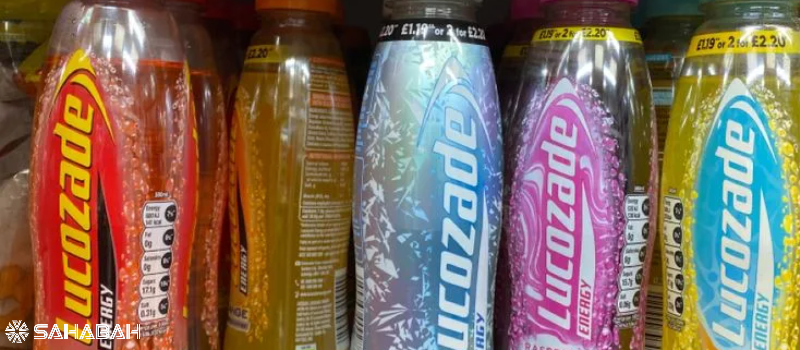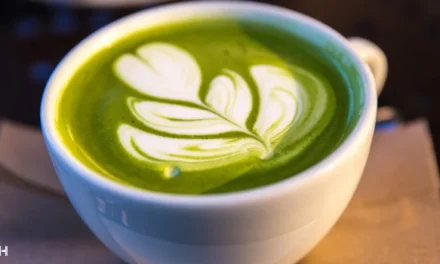Lucozade is a ubiquitous soft drink in the UK, known for providing an energy boost thanks to its carbohydrates and vitamins. However, as a product made by a British company and frequently consumed by non-Muslims, some Muslims wonder: is Lucozade halal?
This comprehensive article will examine the ingredients, manufacturing process, and other key factors to definitively evaluate if Lucozade is permissible (halal) or prohibited (haram) under Islamic law. We’ll review specifics provided by Lucozade representatives and draw conclusions based on thorough research and religious decrees from reliable sources.
What Makes Food and Drink Halal or Haram?
For a food or drink to be deemed halal, it must comply with Islamic dietary regulations outlined in the Quran and by religious experts. The main criteria include:
Pork and Meat Products
- Cannot contain pork, pork by-products, or meat from an improper slaughter method
Alcohol and Intoxicants
- Cannot contain alcohol or other substances with an intoxicating effect
Animal By-Products
- Animal-derived ingredients like gelatin must come from a permissible source
Contamination
- Must avoid contamination with any impermissible substances during production
Labeling Accuracy
- Ingredients and processes must be fully disclosed and truthfully labelled
If any of the above criteria are violated or doubted, the food or drink would typically be considered haram or impermissible under the majority consensus of Islamic scholars.
Background on Lucozade Manufacturing
Lucozade is produced by Lucozade Ribena Suntory, a British company that is owned by Japanese pharmaceutical giant Suntory. The popular Lucozade energy drink traces its origins back to 1927 when it was formulated by scientist William Owen. It was originally marketed as a hospital drink for “aiding convalescence”.
The Lucozade manufacturing facility is located in Coleford, Gloucestershire. The company states that this British plant abides by strict health and safety standards, although it does not appear to be officially halal-certified.
Complete List of Lucozade Ingredients
Lucozade energy drinks typically contain:
- Water
- Glucose syrup
- Sweeteners (e.g. sucralose)
- Acidity regulators (e.g. citric acid)
- Preservatives (e.g. potassium sorbate)
- Antioxidants (e.g. ascorbic acid)
- Flavourings
- Vitamins
- Carbonation for the bubbles
Flavoured variants like Orange and Mango also contain fruit juices from concentrate at 2-3%.
Here is the full detailed ingredients list.
In a direct email from Lucozade customer service representative Philip R., he explicitly confirmed:
“We do not use any animal-derived ingredients in our Lucozade drinks or during our manufacturing process. As such, our drinks are suitable for vegetarian and vegan diets.”
This statement indicates halal compliance in avoiding any impermissible meat or animal by-product ingredients.
The Issue of Alcohol in Lucozade
One major point of contention regarding halal status is alcohol. As mentioned earlier, Islamic dietary laws strictly prohibit alcohol or intoxicating substances.
But Lucozade clearly states its drinks do not contain alcohol as an intentional added ingredient. Direct queries get the firm response:
“I can confirm that Lucozade Energy drinks do not contain alcohol as an ingredient.”
However, Lucozade does acknowledge that trace alcohol may still be present from certain sources:
“There may be very low levels as alcohol may sometimes be present in flavourings or fruit juices“
This alcohol may derive from:
- Natural fermentation of fruit sugars
- Botanical extracts containing alcohol residues
- Processing aids that include ethanol
To investigate further, we need to analyze typical levels and origins of such alcohol traces.
International trade federations like the UK Food Standards Agency advise that products cannot be labeled as “non-alcoholic” if containing more than 0.5% alcohol.
Thus, any incidental alcohol in Lucozade would likely fall well below this 0.5% threshold.
In Islam, there is also latitude granted regarding such trace alcohol, as elaborated by next section…
The Hanafi Position on Alcohol Traces
Under the Hanafi school, the predominant Islamic legal school in the UK, foods containing small non-intoxicating amounts of alcohol are considered permissible by many scholars.
For example, contemporary mufti Abu Sayeed of London states:
“If a food contains a minimal amount of alcohol not enough to cause intoxication, it would still be halal.”
Hanafi jurist Imam Ibn Abidin (d. 1884) similarly wrote that just a “traces” of wine or alcohol would not make a dish haram if it leaves one’s faculties intact.
Since any potential alcohol in Lucozade products would likely be a non-intoxicating trace, it does not automatically impede halal permissibility.
Other Relevant Halal Considerations
In addition to alcohol, other aspects like contamination and by-products also dictate whether a product is halal or haram:
Animal By-Products
As quoted earlier, a Lucozade representative has indicated no animal-derived ingredients are used in their drinks or manufacturing. This covers both the beverages and production line.
Many vitamins and supplements today are also lab-produced rather than animal-derived. So health agents like vitamin B3 in Lucozade seemingly avoid haram sources.
Contamination Factors
Islam prohibits both direct and indirect contamination of haram substances in halal products. This would include things like unclean water, porcine residues on machines, etc.
But Lucozade states adherence to rigorous food safety standards at its UK facility. As a large company selling millions of units, it must operate with strong quality controls and hygienic conditions.
So the risk of its drinks being contaminated with alcohol or other impurities seems relatively low.
Seeking Third-Party Halal Certification
Currently, Lucozade products made for the UK market do not appear to carry halal certification by an accredited halal organization like the Halal Food Authority.
However, all indications are that Lucozade would meet criteria to earn a halal symbol if pursued for commercial reasons. The formulation and manufacturing process suggest potential permissibility.
In an email, Lucozade customer service noted:
“I hope the above helps you to make an informed decision depending on your specific dietary requirements.”
This invites Muslims to personally evaluate the evidence available to determine if Lucozade is acceptable for their needs. Those requiring definitive halal verification can also contact Lucozade (contact us) directly to inquire further before consuming.
The Verdict: Is Lucozade Halal?
Given the detailed ingredients lists, manufacturing process descriptions, and other available evidence, Lucozade energy drinks likely meet key criteria for Islamic permissibility and can reasonably be considered halal.
To concisely summarize primary points:
- Lucozade does not contain alcohol as an intentional additive
- Incidental traces of alcohol may occur but fall under acceptableHanafi limits
- Animal-derived ingredients and contamination are avoided
- An expert consultant (mufti) could review and certify if pursued
Of course, Muslim consumers must evaluate their own religious interpretations and standards when determining personal rules on permissible beverages. Individuals may choose to exercise precautions or avoid doubtful products.
However, the information provided by Lucozade compared to common halal standards suggests their popular energy drink range does conform to major Islamic legal criteria. While not officially certified halal, consuming Lucozade drinks likely fits within general allowances by authorities like the Hanafi school.
For additional questions on the halal status of specific Lucozade flavours or formulations, customers can email the manufacturer or a knowledgeable scholar for personalized religious guidance.
Frequently Asked Question: Is Lucozade considered Halal?
According to the Lucozade website, their products cannot be claimed as Halal. However, it is recommended that you check the ingredients list if you have specific dietary requirements.
Does Lucozade contain ethyl alcohol?
Lucozade may contain naturally occurring alcohol as part of its ingredients. It is advisable to review the ingredients list if you have concerns about ethyl alcohol.
Can I drink Lucozade if I follow Halal dietary laws?
Lucozade and Ribena, which are part of the same company, have stated that their products cannot be claimed as Halal. It is best to check the ingredients list and consult with appropriate authorities regarding your specific dietary requirements.
What about Ribena? Is it considered Halal?
Similar to Lucozade, Ribena products have been mentioned by the company as non-Halal. It is recommended to examine the ingredients list and consult relevant sources for specific dietary concerns.
Are there any flavorings containing alcohol used in Lucozade?
Lucozade mentions that they use flavorings in their drinks, but it is best to review the ingredients list to determine if any flavorings contain alcohol or if you have any specific concerns.
Can Lucozade products be consumed by individuals following strict Halal dietary guidelines?
It is essential to note that Lucozade and Ribena products cannot be considered as Halal according to the company. It is advised to check the ingredients list and consult with relevant governing bodies for clarity on specific dietary requirements.
Does Lucozade contain any ingredients that may not align with Halal dietary laws?
Lucozade states that their products may contain naturally occurring alcohol, which may be a concern for individuals following Halal dietary laws. Reviewing the ingredients list is recommended to ensure compliance with specific dietary requirements.
Are Lucozade and Ribena certified by any international trade federations or organizations that align with Halal standards?
Lucozade and Ribena have not been claimed as Halal by the company. It is advisable for individuals following specific dietary requirements to check the ingredients list and consult with appropriate organizations for information on Halal certifications.
What is the stance of Lucozade regarding the use of alcohol in their products?
Lucozade has acknowledged that their products may contain naturally occurring alcohol. It is recommended to review the ingredients list and seek guidance on specific dietary concerns, including the use of alcohol, if needed.
What would Lucozade recommend for individuals with specific dietary requirements related to Halal consumption?
Lucozade recommends that individuals with specific dietary requirements, such as those related to Halal consumption, check the ingredients list and seek appropriate guidance to ensure adherence to their dietary restrictions.





